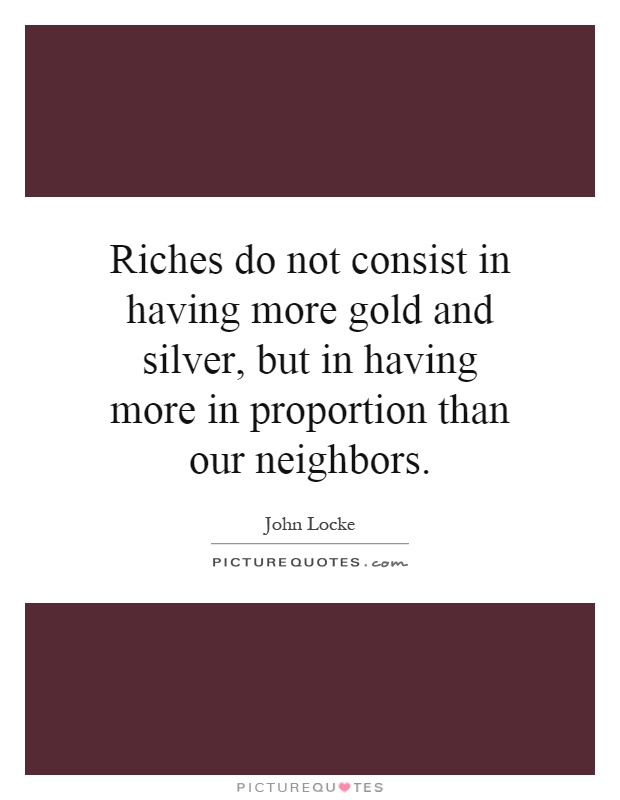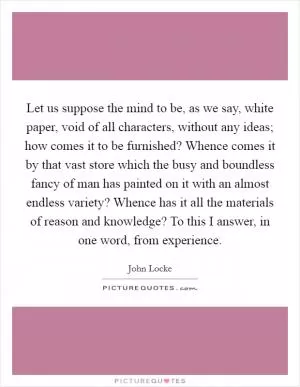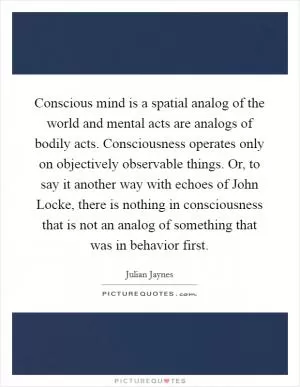Riches do not consist in having more gold and silver, but in having more in proportion than our neighbors

Riches do not consist in having more gold and silver, but in having more in proportion than our neighbors
John Locke, a prominent philosopher of the Enlightenment era, believed that true wealth did not come from the accumulation of material possessions, but rather from having more in proportion to one's neighbors. In his view, riches were not measured by the amount of gold and silver one possessed, but by the relative abundance of resources and opportunities available to an individual compared to those around them.Locke's philosophy on wealth can be understood in the context of his broader ideas on property and the social contract. He argued that individuals have a natural right to acquire and possess property, but that this right is not unlimited. In his Second Treatise of Government, Locke famously stated that individuals have a right to property as long as they leave "enough and as good" for others. This principle of proportionality is key to understanding Locke's views on wealth and inequality.
For Locke, true wealth was not about amassing riches at the expense of others, but about creating a society where everyone had the opportunity to prosper. In his view, a just society was one in which individuals could acquire property through their own labor and industry, without infringing on the rights of others. This idea of proportionality was central to Locke's vision of a just and equitable society.
In the context of "riches do not consist in having more gold and silver, but in having more in proportion than our neighbors," Locke would argue that true wealth is not about hoarding resources for oneself, but about creating a society where everyone has the opportunity to thrive. In a just society, individuals would not measure their wealth by the amount of gold and silver they possessed, but by the relative abundance of resources and opportunities available to all members of the community.












 Friendship Quotes
Friendship Quotes Love Quotes
Love Quotes Life Quotes
Life Quotes Funny Quotes
Funny Quotes Motivational Quotes
Motivational Quotes Inspirational Quotes
Inspirational Quotes